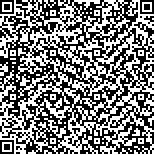| 引用本文: | 冯炼.卫星遥感解译湖泊蓝藻水华的几个关键问题探讨.湖泊科学,2021,33(3):647-652. DOI:10.18307/2021.0301 |
| Feng Lian.Key issues in detecting lacustrine cyanobacterial bloom using satellite remote sensing. J. Lake Sci.2021,33(3):647-652. DOI:10.18307/2021.0301 |
|
| |
|
|
| 本文已被:浏览 9071次 下载 7776次 |

码上扫一扫! |
|
|
| 卫星遥感解译湖泊蓝藻水华的几个关键问题探讨 |
|
冯炼
|
|
南方科技大学环境科学与工程学院, 深圳 518055
|
|
| 摘要: |
| 蓝藻水华是全球性的水环境健康问题,对水华暴发过程信息的快速准确获取是制定有效防治措施的关键.卫星遥感因具有大范围、周期性观测的特点,被广泛地用于湖泊蓝藻水华的时空动态监测.本文指出在利用遥感对湖泊蓝藻水华进行研究时,需要注意的4个问题:(1)湖泊水体中泥沙等信号对藻华存在干扰;(2)大气程辐射及水陆边界影响藻华特征提取结果;(3)卫星数据的有效观测频次影响获取的藻华时空变化趋势;(4)卫星遥感难以实现藻华暴发区的叶绿素浓度准确反演.本文分析了形成上述问题的主要原因,并建议相关的研究工作者在选用合适的遥感数据及方法时,对它们的潜在影响进行评估. |
| 关键词: 蓝藻水华 卫星遥感 光谱特征 大气校正 时空变化 |
| DOI:10.18307/2021.0301 |
| 分类号: |
| 基金项目:国家自然科学基金项目(41971304)和广东省普通高校重点领域专项(2020ZDZX3006)联合资助. |
|
| Key issues in detecting lacustrine cyanobacterial bloom using satellite remote sensing |
|
Feng Lian
|
|
School of Environmental Science and Engineering, Southern University of Science and Technology, Shenzhen 518055, P. R. China
|
| Abstract: |
| Cyanobacterial bloom is a global water environmental and health problem. The rapid information on the bloom processes is imperative to conduct effective control measures. Satellite remote sensing has been widely used to monitor the spatiotemporal dynamics of cyanobacterial blooms in lakes due to its large-scale and periodic observations. Our paper points out four key issues when using remote sensing to study cyanobacterial blooms in lakes: (1) signals of algal blooms can be interfered by other features in the lake; (2) atmospheric radiation impacts the extraction of algal blooms; (3) the acquired spatiotemporal trend of algal bloom can be influenced by the observational frequency of satellites; (4) it is challenging to use satellite remote sensing to accurately inverse the chlorophyll concentrations in algal bloom outbreak areas. We analyze the main reasons for the above-mentioned problems and recommend that appropriate remote sensing datasets and methods should be used to minimize the potential impacts. |
| Key words: Cyanobacterial bloom satellite remote sensing spectral feature atmospheric correction spatiotemporal trend |
|